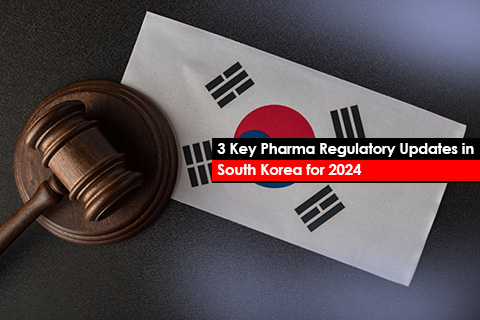
The South Korean pharmaceutical industry is about to take a big leap forward! Imagine a landscape where cutting-edge innovation meets unwavering government support, all aimed at elevating patient safety to new heights. Let us explore the driving force behind this exciting growth and what it means for the future.
Fueling Progress through Innovation
Global pharmaceutical companies in South Korea are increasingly prioritizing Research and Development (R&D), focusing on innovation to meet the evolving needs of patients and remain competitive in the global market. Some of the key areas of innovation include:
- Development of New Medicines: Developing novel drugs and therapies for a wide range of diseases.
- Drug Delivery Systems: Creating more efficient and targeted methods of delivering medications to patients.
- Platform Technologies: Building versatile platforms that can be used to develop new drugs and therapies in a faster and more efficient manner.
By investing in R&D, South Korean pharmaceutical companies are enhancing their research capabilities and creating job opportunities for high-quality researchers. This kind of a strategic focus on skill development is, in turn, fostering a highly dynamic pharmaceutical landscape.
Strong Governmental Support
The South Korean government is actively supporting the pharmaceutical industry, aiming to achieve a production capacity of 100 trillion won and double its exports by 2030. The strong governmental support is expected to:
- Attract New Players: Create a more attractive environment for new companies to invest in the industry.
- Empower Existing Companies: Allow existing companies to expand their R&D efforts, leading to further innovation and growth.
Thus, the South Korean government’s support is likely to generate major growth in the pharmaceutical industry, creating opportunities for both established players and newcomers in the market.
Stringent Regulations for CAR T-cell Therapies
While innovation drives the South Korean pharmaceutical industry, patient safety remains the top priority. The Ministry of Food and Drug Safety (MFDS), South Korea is implementing stringent Regulatory oversight for Chimeric Antigen Receptor (CAR) T-cell therapies, which is a cutting-edge form of cancer treatment. Regulations for CAR T-cell therapies include:
- Mandatory Reporting of Adverse Reactions: Companies must report any suspected adverse reactions, including T-cell malignancies, which can be a possible side effect of CAR T-cell therapy.
- Alignment with Global Standards: By adopting measures similar to those recently implemented by the United States Food and Drug Administration (US FDA), the MFDS ensures a consistent approach to ensuring the safety of CAR T-cell therapy.
These regulations, while potentially delaying the approval of new CAR T-cell therapies, reflect the MFDS’s strong commitment to ensuring the safety of patients receiving the powerful new treatments. Companies seeking to introduce new CAR T-cell therapies in South Korea must comply with the regulations and engage with the MFDS at the initial stages of the development process to ensure that they meet all the requirements for a successful market entry.
To sum up, the South Korean pharmaceutical industry is poised for significant growth, fueled by innovation, governmental support, and a relentless focus on patient safety. As you navigate this exciting yet complex Regulatory landscape, Freyr stands ready to be your trusted partner, ensuring accelerated success. Get in touch with our experts now!


